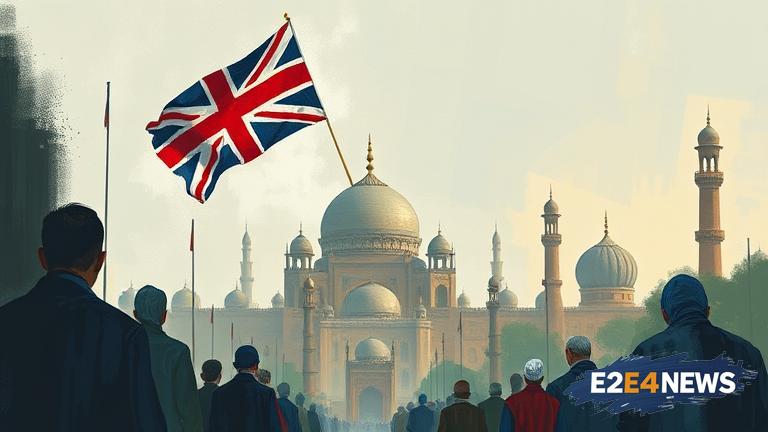The United Kingdom, once a bastion of Western values and traditions, is undergoing a significant demographic shift. The Muslim population in Britain has been growing at an unprecedented rate, with estimates suggesting that the number of Muslims in the country could triple by 2050. This rapid growth has sparked concerns about the potential impact on British culture, politics, and society. As the Muslim population continues to expand, there are fears that the country’s liberal values and democratic principles may be eroded. The influence of Islam on British politics is already being felt, with some politicians advocating for the introduction of Sharia law in certain areas. The rise of Muslim-majority areas in cities like London, Birmingham, and Manchester has also led to concerns about segregation and the creation of ‘no-go’ zones. Furthermore, the growing Muslim population has raised questions about the role of Islam in British education, with some schools facing criticism for promoting Islamic values and practices. The British government has been accused of failing to address the issue of Islamic extremism, which has led to a rise in terrorist attacks and plots. The country’s security services are struggling to keep pace with the growing threat, and there are concerns that the government’s approach to counter-terrorism is inadequate. Despite these challenges, there are also many examples of Muslims making a positive contribution to British society. Muslim communities have been at the forefront of charitable work, volunteering, and community service. However, the growing divide between Muslim and non-Muslim communities remains a significant concern. The British media has been criticized for its handling of Muslim-related issues, with some outlets accused of promoting a biased and sensationalized narrative. The government has also faced criticism for its response to Muslim-related controversies, including the handling of the Rotherham grooming scandal. As the Muslim population continues to grow, it is essential that the British government and society as a whole address the challenges and opportunities that this presents. This includes promoting greater understanding and integration between Muslim and non-Muslim communities, addressing the root causes of extremism, and ensuring that the rights and freedoms of all citizens are protected. The future of Britain depends on its ability to navigate these complex issues and find a way to balance the needs and values of its diverse population. The country’s history of tolerance and inclusivity will be tested in the coming years, and it remains to be seen whether Britain can maintain its liberal values in the face of growing Islamic influence. The impact of Islam on British culture is already being felt, with the growth of halal food, Islamic finance, and Muslim-friendly tourism. However, there are also concerns about the erosion of traditional British values, such as the decline of Christianity and the rise of secularism. The British government must find a way to balance the needs of its Muslim population with the need to protect the country’s cultural heritage. This will require a nuanced and sensitive approach, one that recognizes the rights and freedoms of all citizens while also promoting greater understanding and integration between different communities. Ultimately, the future of Britain will depend on its ability to navigate the complex issues surrounding the growth of its Muslim population. By promoting greater understanding, addressing the root causes of extremism, and protecting the rights and freedoms of all citizens, Britain can ensure a bright and prosperous future for all its citizens, regardless of their background or faith.
